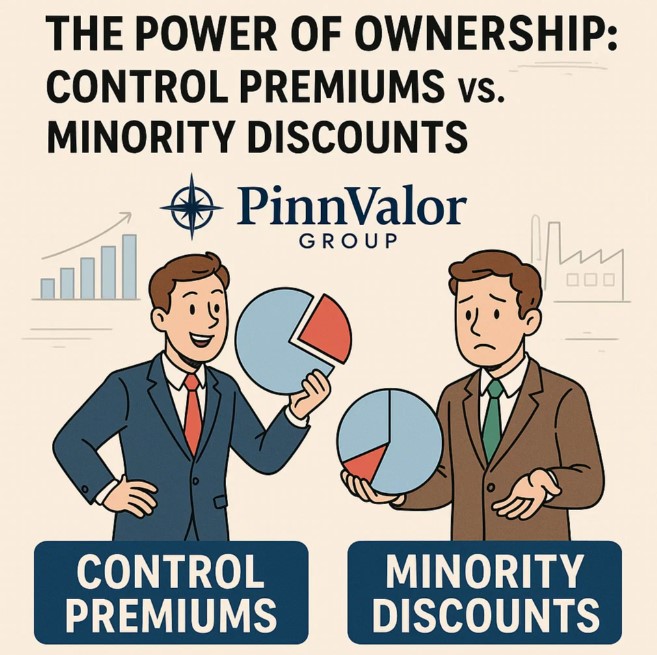
The Power of Ownership: Control Premiums vs. Minority Discounts
In the realm of business valuation, ownership isn’t just about having shares—it's about the level of control those shares grant. The rights and influence associated with ownership stakes can significantly affect their value. Two essential valuation concepts that capture this are Control Premiums and Minority Discounts. Grasping these concepts is crucial for investors, acquirers, business owners, and financial analysts alike.
Is your stake in a company truly valuable—or is it just a seat without a say?
Minority shareholders may own a piece of the pie—but without influence, that slice can lose its flavor. Valuation must reflect the power, not just the portion.
What is a Control Premium?
A Control Premium is the additional amount an investor is willing to pay over the market value of a company’s shares to acquire a controlling interest. This premium reflects the advantages of having control over the company's operations and strategic direction.
Key benefits that justify a control premium include:
- The ability to appoint or remove management
- Control over dividend distributions and capital expenditure decisions
- Influence over mergers, acquisitions, and other strategic initiatives
- Full access to company information and financial records
In mergers and acquisitions, buyers often pay this premium to gain the ability to drive the business forward according to their vision.
Understanding the Minority Discount
On the other end of the spectrum, a Minority Discount—also known as a Discount for Lack of Control (DLOC)—is a reduction applied to the value of a minority ownership stake. This discount reflects the disadvantages faced by minority shareholders who cannot influence key business decisions.
Common reasons for applying a minority discount include:
- No authority in management decisions or company policy
- Limited access to confidential company information
- Inability to influence dividend policies or liquidity events
- Reduced appeal to potential buyers
In essence, minority shareholders are often in a position where they benefit from ownership without any real power.

Why These Adjustments Matter in Valuation
Control premiums and minority discounts help adjust for the real economic differences between controlling and non-controlling stakes. They are critical in situations such as:
- Business sales and acquisitions
- Valuation of ownership interests for estate and gift tax purposes
- Shareholder disputes or partnership dissolutions
- Succession planning and buy-sell agreements
Applying these adjustments ensures that the valuation reflects not just the share of financial performance, but also the rights that come with it.
The Interplay Between Control and Minority Positions
Control premiums and minority discounts are inherently linked—they represent opposite ends of the ownership spectrum. While a control premium increases the valuation of a majority stake, a minority discount reduces the valuation of a smaller, non-controlling stake.
However, they should be applied carefully. Overuse or misapplication of both can lead to distorted valuations or double-counting. Professional judgment, market evidence, and legal context must guide their use.
Common Misconceptions
- Myth 1: Every minority interest deserves a discount.
Reality: Not always. In closely held companies with strong shareholder agreements, minority owners may still have substantial rights. - Myth 2: Control premiums are standard in every acquisition.
Reality: Control premiums are more common in strategic acquisitions but may not be relevant in financial investments or passive holdings.
Final Thoughts
In valuation, control is a powerful currency. Whether acquiring a company or determining the value of an ownership interest, recognizing the influence of control premiums and minority discounts is essential. These adjustments go beyond numbers—they capture the real-world impact of power, influence, and decision-making authority.
Ownership isn’t just about what you own—it's about what you can control. And in valuation, that distinction makes all the difference.
